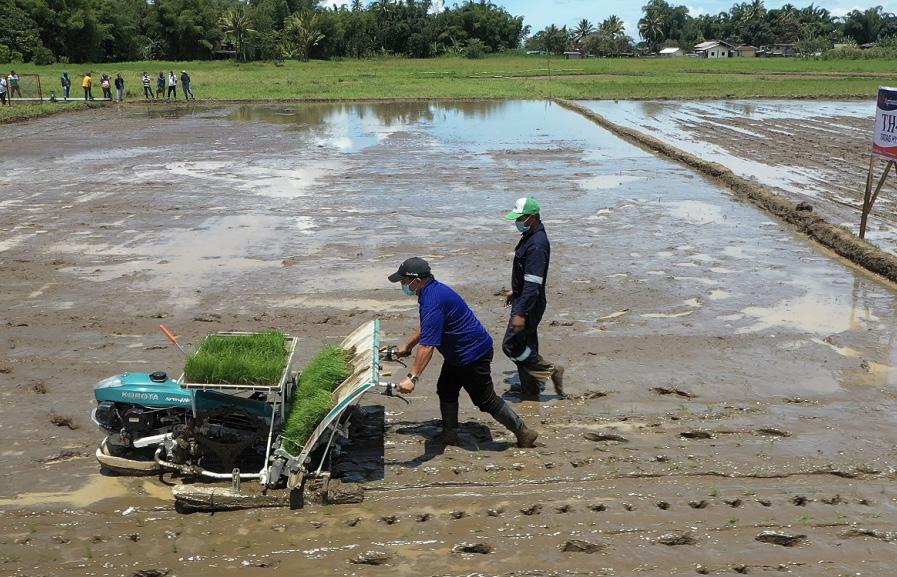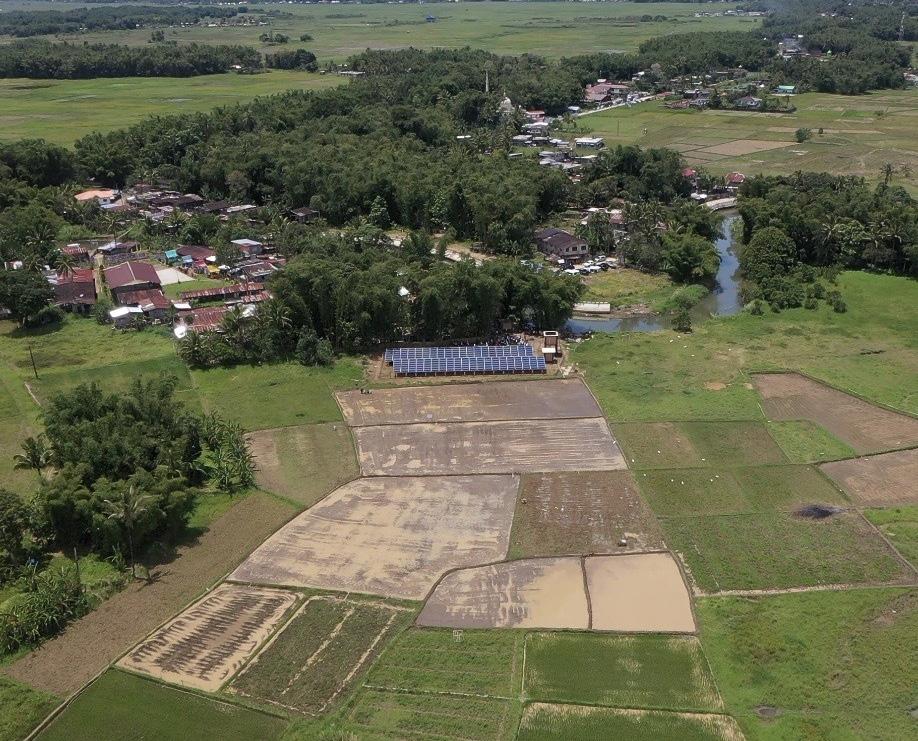
3 minute read
LANAO DEL SUR TO PILOT EXPORT-QUALITY MINDANAO HALAL RICE PRODUCTION
Lanao del Sur to Pilot ExportQuality Mindanao Halal Rice Production
A pilot project in Lanao del Sur promotes knowledge sharing between farmers to produce premiumquality halal rice. Photo credit: Mindanao Development Authority.
Advertisement
A program that promotes technology sharing between Christian and Muslim farmers will produce halal rice in Mindanao.
In a Facebook post, Mindanao Development Authority (MinDA) Chairman Emmanuel F. Piñol said the Salam Brotherhood Farming Program will grow premium rice varieties on about 200 hectares of land in Taraka, Lanao del Sur using two solar-powered irrigation systems.
“The production of Halal Premium Rice in Taraka and other neighboring towns could make Lanao del Sur a major producer of a commodity with huge market potential in other provinces in the Bangsamoro Region and neighboring Muslim countries like Brunei Darussalam, Indonesia, and Malaysia,” he said.
Lanao del Sur is a province in the Philippines located in the Bangsamoro Autonomous Region in Muslim Mindanao (BARMM), one of the poorest regions in the country. BARMM was created in 2019 as part of a peace agreement to end nearly 5 decades of conflict between the government and secessionists.
The Maranao, the largest Muslim cultural-linguistic group in the country, live around Lake Lanao. Rice farming is their main livelihood.
Promoting peace, strengthening food security
Piñol said he designed the program when he was governor of Cotabato province in 2002 to “bring together Muslim and Christian farmers in a technologysharing strategy” and ease tensions between them. The province is a major food basket in the SOCCSKSARGEN region of Mindanao.
MinDA

involved farmers from the predominantly Christian towns of M’lang and Tulunan mentoring Muslim farmers in Pikit on modern rice farming when the Malitubog–Maridagao (MAL–MAR) Irrigation System, a major irrigation project funded by the Japan International Cooperation Agency, was opened.
In the Taraka program, Piñol said highly skilled farmers from Cotabato will teach Maranao farmers modern rice farming for one cropping season while the Muslim farmers will provide guidance on Islamic standards for food production. There will also be a field demonstration of modern farming equipment, like a mechanical transplanter or harvester.
“After the cropping season, the Christian members of Salam Brotherhood Farming would withdraw from the area and go home or be fielded in other areas where Muslim farmers need technology transfer,” he said.
MinDa is looking at two hybrid rice seeds for the program: the US 88 Long Grains of Seedworks Philippines and the Kimbee Long Grains of Ramgo Seeds International. “Both seed companies are supporting the program by allowing the Maranao farmers to plant the rice seeds payable upon harvest while several organic fertilizer production groups have also offered their products on a payafter-harvest scheme,” said Piñol.
Solar-powered irrigation
The pilot area for halal rice cultivation is the first to be covered by the solar-powered irrigation systems in Taraka, which will be fully operational before the end of August with the commissioning of four more solar-powered systems. irrigation systems are the first in BARMM and were funded by a loan from state-owned Development Bank of the Philippines. These will enable farmers to plant at least twice a year as well as provide safe drinking water to residents. Service fees will be charged to users to help the municipal government pay for the cost of these facilities.
Piñol said the rice fields in Taraka are beside Lake Lanao but lack water for irrigation. Only 3 metric tons of rice per hectare are harvested once a year.
MinDA
The pilot area for halal rice cultivation is the first to be covered by the solarpowered irrigation systems in Taraka.










